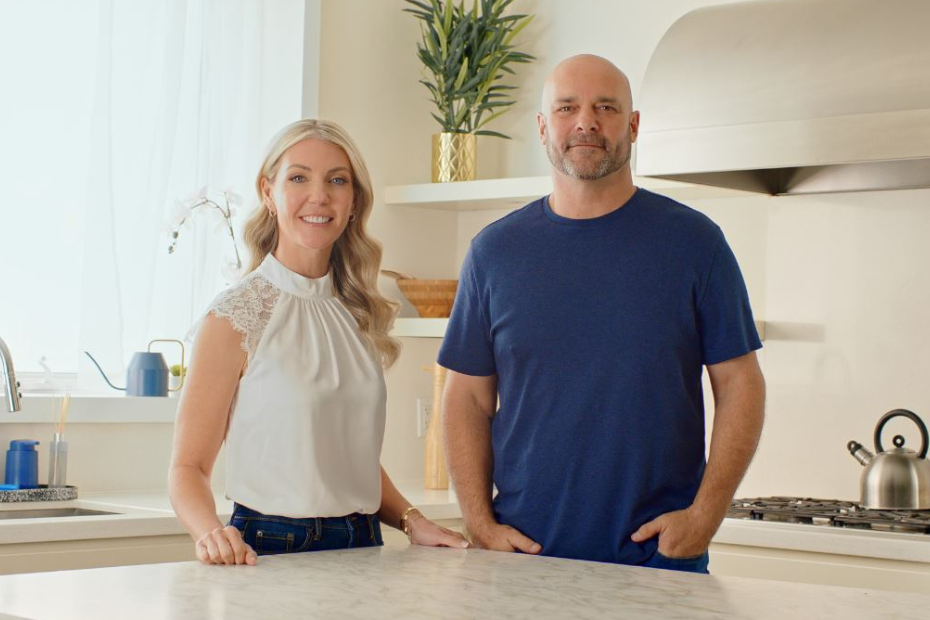Published June 3, 2021 • 5 Min Read
Facing New Challenges Head-On
Over the past fifteen months, Kids & Company continued to support parents, solving one of the most significant challenges of the pandemic by creating safe environments for kids under four where they could be cared for, learn and play in a nurturing, stimulating environment. While some centres closed for long periods of time at the onset of the pandemic, others never closed. The Kids & Company team quickly solved staffing dilemmas, realigned virtual support and implemented new safety protocols. “At the beginning of the pandemic we were closed for thirteen weeks in Ontario,” says Sopik. “Meanwhile, B.C. didn’t shut down for a single day. Various provinces shut down for various lengths of time. It was a scramble.” Kids & Company adapted as circumstances changed and have seen most families return as the government recognized childcare as an essential service. “It’s hard to work from home with a child under four to care for, ” says Sopik. Managing the health and safety of both children and staff at their centres has been the top priority of the team, which developed stringent safety measures, detailed response strategies and robust communications. Their pandemic response team, made up of Chief Operating Officer, VP of Human Resources and Customer Care Liaison, meets every morning at 9:30 to talk about the latest health news, and the COO is on the phone daily with Public Health. And, should any children have symptoms of any kind — from a runny nose to a sore tummy — they have to have a COVID test before they can return. Parents aren’t allowed beyond the front door and teachers work with both a face mask and full shield. “Imagine how challenging it would be to give babies bottles, change them and play with them,” says Sopik of their educators. “They’re our heroes — we’re so proud of them and grateful. We wouldn’t have been able to operate without them.” Their strict measures have paid off, resulting in minimal illness through the centres. “There’s been virtually no colds or flu this year because everyone is so careful,” Sopik says. As Canadians have seen throughout the pandemic, even the best-laid plans have to be consistently adapted as new challenges surface regularly. The surge in Nova Scotia, for instance, after a year of nearly no cases, caused one centre to shut down for a period. “We learned that just when we think we can sit for a minute and feel that we’ve got this, there’s something new happening,” says Sopik. Their next challenge, she admits, will be how some teachers may not wish to get vaccinated. “We can encourage them but we can’t force them,” she says. “But if a parent lives with their elderly parents, will they need the assurance that all workers have been vaccinated? There are a lot of challenges on the horizon — it’s not going to be a matter of snapping your fingers and life going back to normal.”Creating Vibrant Virtual Solutions
Even before the pandemic, Kids & Company has offered a robust lineup of online resources for parents who work in member organizations — regardless of whether or not they have a child enrolled in their centres. “Because we are corporately focused, we started doing webinars a number of years ago,” explains Linda Starr, Vice President, Sales & Marketing. “Since the pandemic started, we really pivoted and started hosting more webinars on a variety of topics, such as supporting young children through transition stages, sleep techniques, building resilience in school-aged children and more. We now also run activities for families and virtual events for children.” Today, Kids & Company offers consistent family-focused events that include magicians, storytelling and singalongs. Their chef created a menu and sent out recipe cards to families who were interested in cooking classes. The objective is to offer one big family event per month, such as a yoga session, a virtual tour of a zoo or aquarium or other family-friendly entertainment. As the country gradually re-opens, Kids & Company plans to continue virtual offerings, given the positive feedback they’ve received. But they’re also looking forward to the time when they can once again offer their very popular date night special, where parents get a day or a night of child care on the house to get the time they deserve. “Right now we’re focused on doing the best we can,” says Sopik. “It’s tough for everybody at all different levels. We want to thank our families for being so patient with us.” As an award-winning, innovative Canadian business, Kids & Company has demonstrated the flexibility, resilience and adaptability needed to get through the pandemic. Their quick thinking and people-first approach enabled them to offer consistent, reliable and safe solutions for parents and children.This article is intended as general information only and is not to be relied upon as constituting legal, financial or other professional advice. A professional advisor should be consulted regarding your specific situation. Information presented is believed to be factual and up-to-date but we do not guarantee its accuracy and it should not be regarded as a complete analysis of the subjects discussed. All expressions of opinion reflect the judgment of the authors as of the date of publication and are subject to change. No endorsement of any third parties or their advice, opinions, information, products or services is expressly given or implied by Royal Bank of Canada or any of its affiliates.
Share This Article






